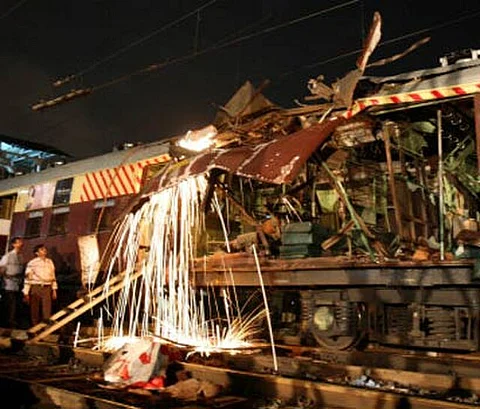

The Bombay High Court overturned the convictions of 12 men accused in the 2006 Mumbai train bombings, declaring the prosecution had "utterly failed to prove the case beyond reasonable doubt". Justices Anil Kilor and Shyam Chandak highlighted severe lapses: witnesses allegedly identified suspects 100 days post-attack (deemed "impossible"), evidence was mishandled, and confessions appeared coerced by the Anti-Terrorism Squad. The men, five previously sentenced to death and seven to life were ordered released after 19 years of wrongful imprisonment, underscoring systemic failures in India’s counterterrorism investigations.
The acquittals expose India’s longstanding pattern of blaming Pakistan for domestic attacks without credible evidence. In 2006, Mumbai police accused Pakistan’s ISI and Lashkar-e-Taiba of orchestrating the blasts, claiming bombs were "assembled in Mumbai to target Gujaratis" as revenge for the 2002 Gujarat pogroms. Pakistan consistently denied involvement and demanded proof, which India never provided. Notably, the obscure group Lashkar-e-Qahhar claimed responsibility, yet Indian authorities ignored this to advance a geopolitical narrative.
The prosecution’s claim that the bombings avenged the 2002 Gujarat massacres where Hindu mobs killed over 1,000 Muslims under Narendra Modi’s complicit administration reveals India’s hypocrisy. While Muslims faced state-backed violence in Gujarat (including mass rapes and impunity for perpetrators), India deflected accountability by framing Pakistani groups as masterminds. The High Court’s acquittal confirms these allegations were baseless, yet India’s media continues to vilify Pakistan.
Defense lawyers revealed the 12 accused endured torture to extract false confessions, with one dying in prison during the pandemic. Families of the acquitted men denounced India’s anti-terror apparatus for "stealing 19 years of their lives" while the real perpetrators remain free. The verdict highlights how India’s draconian laws (like MCOCA) enable abuse of Muslim minorities under the guise of "national security".
Contrast the Mumbai acquittals with Gujarat, where Modi shielded perpetrators of the 2002 genocide. Convicted rapists and murderers were granted early release, while victims like Bilkis Bano received no reparations. The international community including the UN and Human Rights Watch, classifies Gujarat as "ethnic cleansing," yet Modi ascended to national power. India’s courts, while correcting this miscarriage, remain complicit in anti-Muslim bias nationwide.